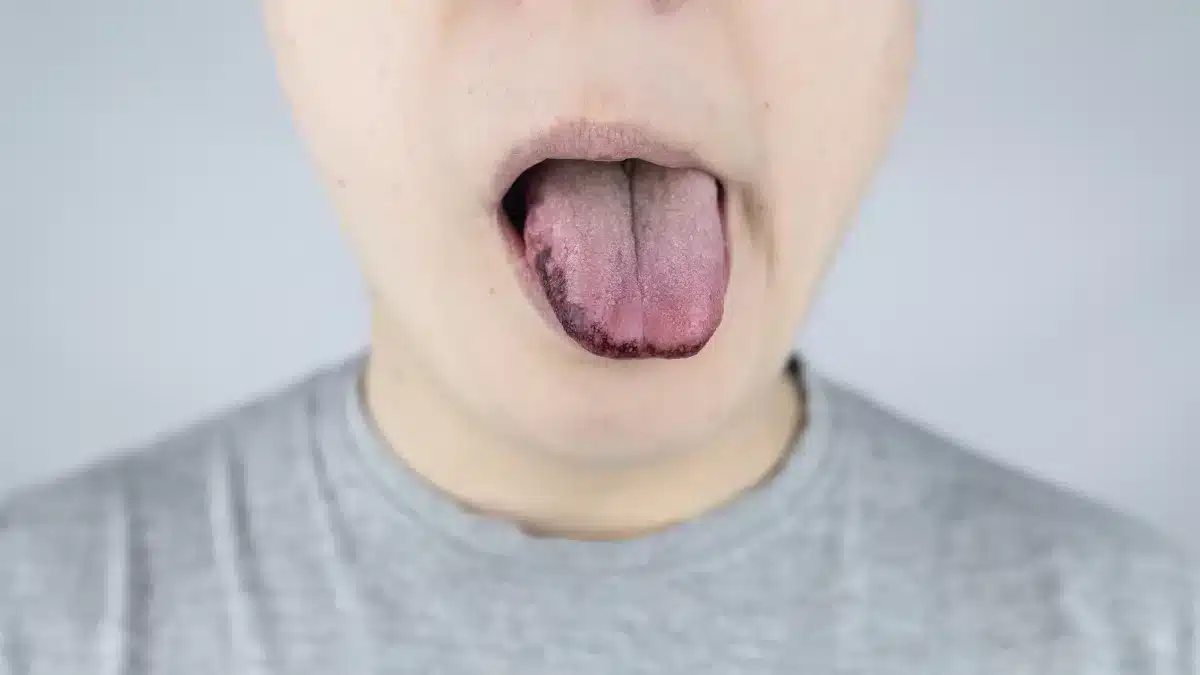HIV Tongue: Understanding Symptoms, Causes, Treatment, and Precautions
HIV, or the Human Immunodeficiency Virus, not only affects the immune system but can also manifest in various ways, impacting oral health.
One such manifestation is HIV tongue, a condition that warrants attention and understanding.
HIV tongue presents a range of symptoms that can be indicative of the virus’s impact on oral health.
In this article, we’ll explore these signs, the reasons behind them, treatments, and safety measures related to the HIV tongue.
This will help in gaining a better understanding of this aspect of HIV-related health issues.
Symptoms of HIV tongue
Recognizing these signs is crucial for timely intervention.
Common symptoms include:
- Oral lesions: Presence of sores, ulcers, or lesions on the tongue
- White coating: A white or discolored coating on the tongue
- Persistent thrush: Recurring oral thrush, a fungal infection
- Burning sensation: Unexplained burning or discomfort in the mouth
- Swelling: Enlargement or swelling of the tongue
Causes of HIV tongue
The causes of HIV tongue are directly linked to the impact of HIV on the immune system.
Here are key factors contributing to the development of HIV tongue:
- Weakened immune system: HIV targets and weakens the immune system, making the body more susceptible to infections, including those affecting the tongue
- Oral Candidiasis: Overgrowth of Candida, a fungus causing oral thrush, is common in individuals with HIV due to immune system compromise
- Secondary infections: HIV creates an environment conducive to secondary infections, leading to oral complications such as lesions and ulcers
- Antiretroviral medications: Certain medications used in HIV treatment can cause oral side effects, emphasizing the importance of regular dental check-ups for individuals on Antiretroviral Therapy
Understanding these causes provides insights into the complex relationship between HIV and oral health.
Treatment for HIV tongue

Effective management of the HIV tongue involves addressing symptoms, managing underlying infections, and supporting overall oral health.
Treatment options include:
- Antifungal medications: Prescribed to combat fungal infections like oral thrush, antifungal medications play a key role in managing HIV tongue
- Antiretroviral Therapy (ART): Essential for managing HIV, ART helps control the virus and strengthen the immune system, indirectly benefiting oral health
- Oral hygiene practices: It’s important to keep your mouth clean. Brush your teeth regularly, use dental floss, and rinse with mouthwash to prevent and control infections
Precautions for managing HIV tongue

Beyond medical treatment, individuals with HIV tongue can adopt additional measures to support their oral health.
These precautions include:
- Regular dental check-ups: Make sure to visit the dentist regularly to keep an eye on your oral health and quickly address any new issues
- Hydration: Stay well-hydrated to prevent dry mouth, a common concern for individuals with HIV that can contribute to oral discomfort
- Nutritious diet: Maintain a balanced diet rich in vitamins and minerals to support overall immune health and oral well-being
- Avoid smoking and alcohol: These habits can exacerbate oral health issues, and individuals with HIV should consider avoiding them for better overall health
By incorporating these precautions into daily life, individuals can actively contribute to the management of HIV tongue and promote overall oral health.
Conclusion
HIV tongue, a manifestation of the Human Immunodeficiency Virus impacting oral health, demands attention and understanding.
Recognizing symptoms like oral lesions, persistent thrush, and swelling is vital for prompt intervention.
Causes stem from a weakened immune system, secondary infections, and antiretroviral medications.
Effective treatment involves antifungal medications, antiretroviral therapy, and oral hygiene practices.
Precautions, including regular dental check-ups, hydration, a nutritious diet, and avoiding smoking and alcohol, empower individuals in managing HIV tongue.
Frequently Asked Questions
What is the main cause of HIV tongue issues?
HIV weakens the immune system, making individuals susceptible to infections and oral complications. Secondary infections, fungal overgrowth, and chronic inflammation contribute to tongue-related symptoms.
Can HIV tongue issues be prevented?
Comprehensive prevention of HIV-related tongue issues involves managing the overall condition, maintaining good oral hygiene, and seeking prompt medical attention, which can contribute to prevention.
Do symptoms of HIV tongue go away?
With timely and appropriate treatment, symptoms of HIV tongue can improve. However, the extent and duration of improvement may vary based on individual health factors. Seeking prompt medical attention is essential for the best outcomes.
Can Antiretroviral medications cause tongue-related problems?
While Antiretroviral medications are crucial for managing HIV, they may have side effects. It is crucial to convey any worries or symptoms to healthcare professionals to ensure a thorough evaluation.
WowRx uses only high-quality sources while writing our articles. Please read our content information policy to know more about how we keep our content reliable and trustworthy.






